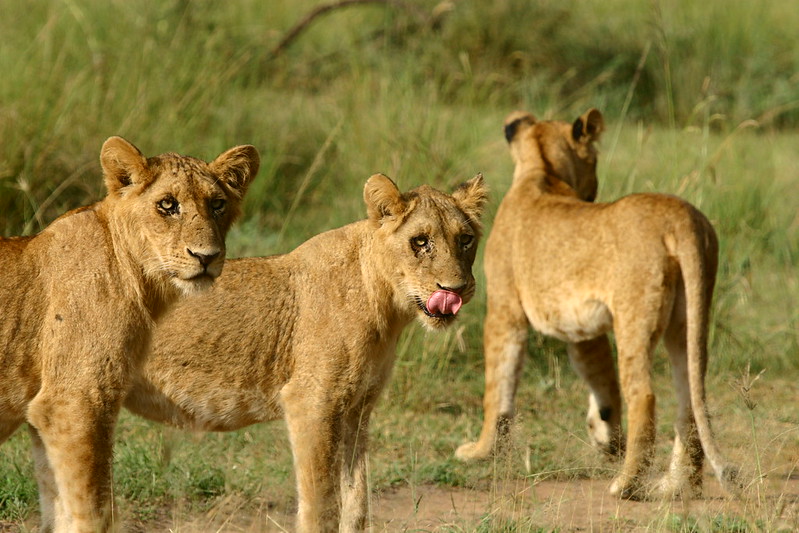Understanding the Vulnerabilities of the Majestic Lion
Lions, the kings of the animal kingdom, have always captivated human imagination with their majestic presence and powerful demeanor. These apex predators are known for their incredible strength and hunting prowess, but like all creatures, they too have their weaknesses. In this article, we will delve into the vulnerabilities of these regal beasts, shedding light on the lesser-known aspects of their lives and the challenges they face in the wild.
-
Environmental Adaptations
One of the primary vulnerabilities that lions face is their limited adaptability to changing environments. Lions are often considered habitat specialists, preferring open savannas and grasslands. Unlike some other predators, such as hyenas, that can thrive in a wider range of habitats, lions are highly dependent on these specific ecosystems. This lack of adaptability makes them vulnerable to habitat loss and fragmentation, which are exacerbated by human activities like deforestation and urbanization.
-
Scavengers and Competition
Lions are top predators, but they are not the only carnivores in the wild. They often face competition and conflict with other predators like hyenas, leopards, and cheetahs. Hyenas, in particular, are fierce competitors and often steal lion kills. Lions’ hierarchical social structure can also be a weakness as dominant individuals within a pride get first access to food, which may leave subordinates vulnerable to starvation during lean times.
-
Vulnerable Cubs
Lion cubs are incredibly cute, but they are also incredibly vulnerable. They are defenseless against larger predators, and even other male lions may kill cubs to assert their dominance. Cubs are also prone to diseases and parasites, and their survival rate is relatively low in the wild, with estimates suggesting that up to 80% of cubs may not make it to adulthood.
-
Limited Hunting Success
Despite their reputation as skilled hunters, lions have a relatively low hunting success rate. Studies have shown that their hunts succeed only about 20-25% of the time. This low success rate is due to various factors, including the cooperation and coordination required among pride members, the agility and speed of their prey, and the element of surprise needed for a successful ambush.
-
Vulnerability to Human Activities
Lions are increasingly vulnerable to various human activities, including poaching and habitat destruction. Poaching, driven by the illegal wildlife trade, results in the killing of lions for their bones, skins, and other body parts. Additionally, habitat destruction not only displaces lions from their natural habitats but also disrupts their prey base, making it harder for them to find food.
Conclusion
While lions are undeniably powerful and awe-inspiring animals, they are not invulnerable. Their specific environmental requirements, competition from other predators, the vulnerability of their cubs, low hunting success rates, and the threats posed by human activities all contribute to their weaknesses. Understanding these vulnerabilities is crucial for conservation efforts aimed at protecting these magnificent creatures and ensuring their survival for generations to come. By addressing these challenges, we can help maintain the balance of nature and continue to appreciate the majesty of the lion in the wild.

